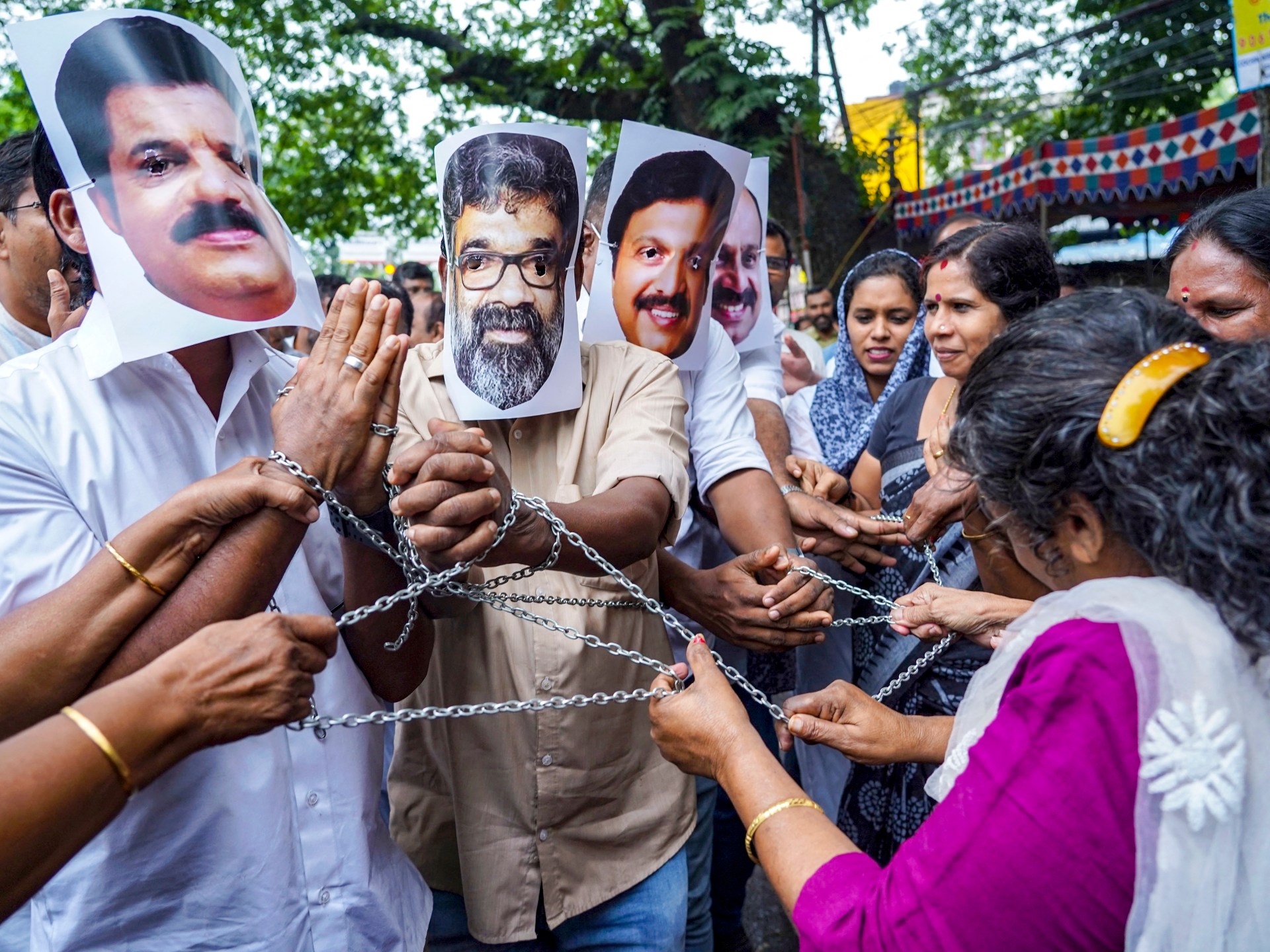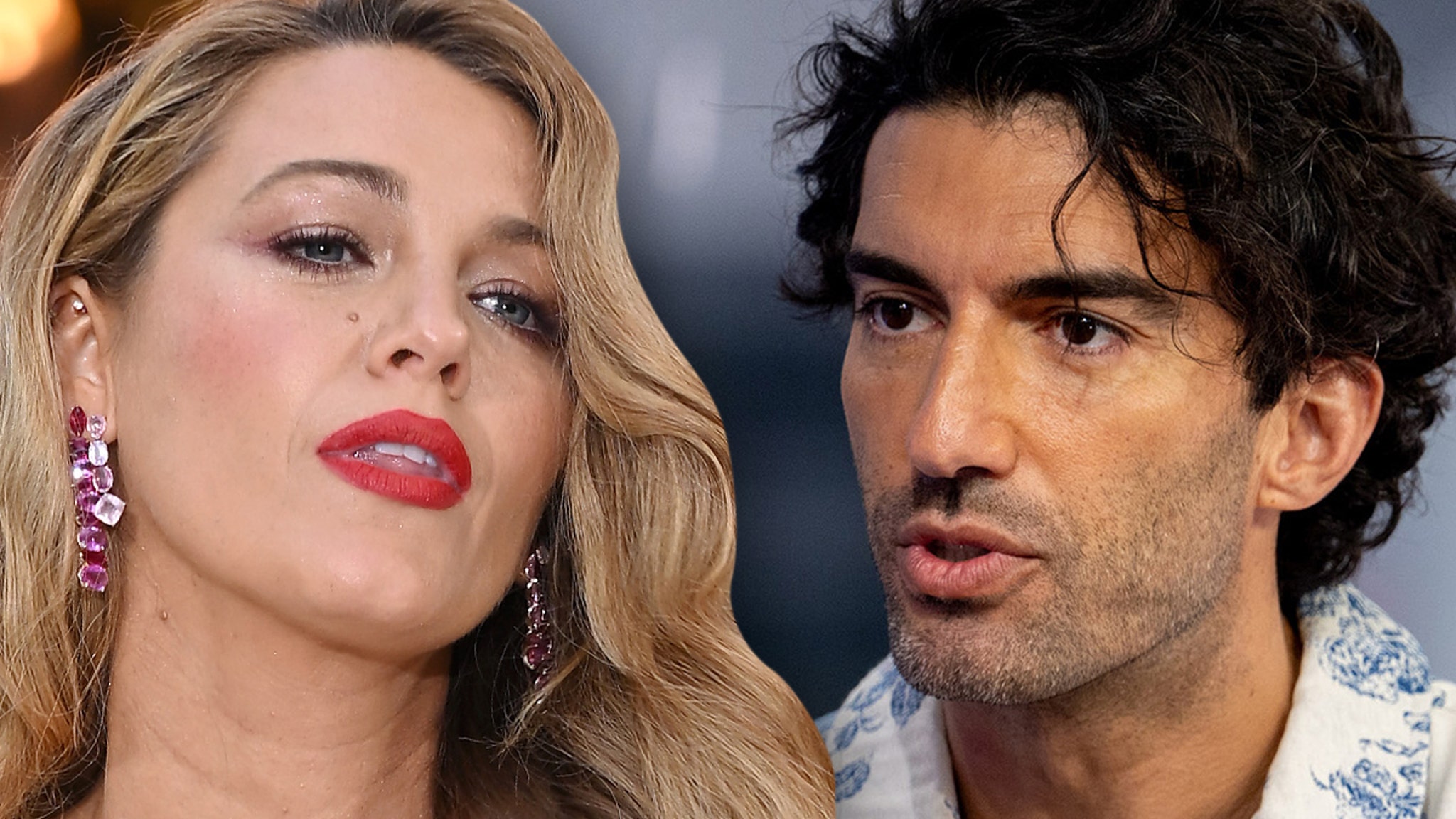
A spate of allegations of sexual misconduct has rocked the film industry in India’s southern state of Kerala, triggering a flood of police cases and leading to calls for a broader reckoning within what is known as Mollywood.
The latest wave of the #MeToo movement, which first took off in 2017, erupted after the findings of an inquiry – into issues faced by men and women in the film industry – prepared by a government-appointed panel known as the Hema Committee, were published on August 19. The report unveiled rampant sexual abuse alongside other workplace violations against women who work in the Malayalam film industry. Malayalam is the dominant language of Kerala.
Sexual harassment is “the worst evil” faced by women in the industry, the report, which spans more than 200 pages, said.
So, what’s happening in Malayalam cinema, what does the report say, and what’s next?
Why was the Hema Committee set up?
In February 2017, an actress was abducted and sexually assaulted by a group of men in a car when she was commuting in Kerala, which sits on India’s southern Malabar coast. The men recorded a video of the assault.
In response to this incident, 18 women from the Malayalam film industry came together under the Women in Cinema Collective (WCC). Malayalam actor Gopalakrishnan Padmanabhan – better known by his stage name Dileep – was arrested in July 2017 for allegedly orchestrating the assault. He was released on bail after three months. The court is still hearing the case.
Al Jazeera emailed Dileep’s lawyer, Raman Pillai, seeking responses to specific questions pertaining to the allegations against the actor, and those in the Hema Committee report. Pillai has not responded.
In November 2017, acting on an appeal from the WCC, the state government of Kerala established the three-member Hema Committee tasked with investigating issues faced by women and men working in the industry. The committee comprised retired Kerala High Court Justice K Hema, former actor Sharada and retired bureaucrat KB Valsala Kumari.
The committee gathered insights from male and female actors, makeup artists, cinematographers and other crew through online surveys and in-person interviews. Videos, screenshots and photos as potential evidence were also collected. Additionally, a member of the committee visited the shooting of a film released in 2019. This was done to study the environment on a film set.
What is the Hema Committee report?
In late 2019, the committee submitted its report to the state government. In late August 2024, a redacted version was made public, with the names of all victims and perpetrators removed.
The late release of the report was criticised by opposition politicians including Shashi Tharoor, a parliamentarian from the Congress party, who said in August: “It is utterly shameful and shocking that the government sat on this report for nearly five years now”.
The government said the report’s release was delayed because it contained sensitive information. “Justice Hema had written to the government on February 19, 2020, urging that the report not be released due to the sensitive nature of the information,” Kerala’s Chief Minister Pinarayi Vijayan was quoted saying by local media in August.
Yet even with details withheld, the report led to shockwaves across India because of what it revealed.
“It’s not just reporting on sexual violence, it shows power equations of the industry, other kinds of violations like discrimination exploitation and retribution,” said J Devika, a feminist academic from Kerala.
What were the report’s key findings?
- “Denial of human rights to women in cinema”: On several film sets, women do not have access to changing rooms or toilets. This, the report found, causes health issues including urinary tract infections, and women on set “have landed up in hospitals on some occasions”.
- “Casting couch”: The report said that women in the industry, especially aspiring actresses, are pressured for sexual favours by actors, producers or directors in exchange for roles in films and other opportunities to advance their careers. Some witnesses produced video clips, audio clips and screenshots of WhatsApp messages to back their claims. The practice is shrouded in euphemism. “‘Compromise’ and ‘adjustment’ are two terms which are very familiar among women in Malayalam film industry,” the report said.
- Online harassment: Several women and men told the committee that they were harassed and trolled in online messages and social media posts. This trolling can be sexual in nature, where actresses receive threats of rape and assault alongside unsolicited images in their inboxes.
- Contract issues: Written contracts lack specific details about the nature of the scenes actors will be required to perform. Some actresses were quoted in the report as saying they were asked to do sexually explicit scenes they were uncomfortable doing, and had not been informed beforehand. Many women also do not get proper remuneration due to unclear contracts, the report said.
Among its recommendations, the report asks for the establishment of a judicial tribunal, which will function as a civil court and would allow women to file complaints.
The government has yet to establish such a tribunal, but it has formed a Special Investigation Team (SIT) to look into a flood of new allegations about past instances of sexual misconduct made by actresses following the report’s publication.
Flood of allegations
After the report was published, many more Malayali actresses came forward with allegations of sexual harassment and assault. Among them:
- Actress Minu Muneer lodged sexual misconduct complaints against seven actors on August 27, including Mukesh, who is also a state legislator from the Communist Party of India (Marxist), which governs Kerala. He has denied the allegations against him and claimed that Muneer previously asked him for money and later tried to blackmail him. On August 27, local media quoted him as welcoming a transparent investigation and saying: “This group, which has been persistently blackmailing me for money, has now turned against me at this opportune moment”. Jayasurya, another of the actors accused by Muneer, has also denied the allegation.
- Sreelekha Mitra, an actress known best for her work in Bengali cinema, accused director Ranjith Balakrishnan of sexual harassment in 2009. The police registered a case against Balakrishnan on August 26. Balakrishnan has claimed these allegations are false, saying that he interacted with Mitra in the presence of a screenwriter and two assistants, according to the Indian digital publication The News Minute.
The entire executive committee of the Association of Malayalam Movie Artists (AMMA), led by one of Malayalam cinema’s biggest superstars, Mohanlal, resigned as some members were themselves implicated in accusations of sexual misconduct.
The SIT, which has received an unredacted version of the Hema Committee report, is now preparing for face-to-face interviews with the actresses who alleged harassment in the report.
What’s next?
Activists, already frustrated with the government’s five-year delay in making the Hema Committee report public, are calling for the names of the alleged perpetrators identified by the panel of experts to be made public.
Devika said it was a “gross violation of the law of the land” to shield their identities, adding that “it is not common for the accused to be protected in this way”.
She said more clarity was needed on how the tribunal recommended by the committee would function, cautioning against a mechanism that could undermine other institutions that deal with sexual harassment complaints.
“Top-down structures erode the credibility of the ones that already exist,” she argued.
Since 2013, Indian law has required every workplace with more than 10 employees to have an internal complaints committee to address issues of workplace sexual misconduct. In practice, however, the implementation of this law has been spotty.
In 2022, the Kerala High Court ordered film production houses to set up these committees. According to Devika, some of the committees are weak and ineffective. But under the law, complainants can also take their allegations to district-level local complaints committees.
Despite their flaws, internal and district committees are usually more approachable for women than a top-down tribunal, Devika argued. “The tribunal is imagined as a supra body”, outside the film industry, she said. “Some of us actually think that you’re cutting off access to justice. Fewer women will be likely to complain if such mechanisms are set up.”
The need to set up another tribunal despite existing mechanisms which are supposed to tackle cases of sexual crimes at the workplace also raises a broader question, Devika said.
“As Indian citizens, how can we say that the existing law won’t protect women just because they work in the cinema?”
The WCC has been posting what it argues are solutions and recommendations on their social media pages following the report’s release.
Beyond naming and shaming
“After the report came out, the questions have been: ‘Who is the perpetrator? Who are these men? Why are they being protected?’” said Nidhi Suresh, an Indian journalist who covered the 2017 case in great detail for The News Minute.
She explained that actresses who have come forward with public allegations following the report’s release have lost work opportunities.
This was echoed by filmmaker and WCC founding member Anjali Menon. The Press Trust of India, a news agency, quoted her saying: “It is true that we have paid the price of losing work opportunities when we spoke up, but over the last seven years, we have consistently made our points and we now have immense support from the media, the legal community and the public”.
Suresh told Al Jazeera that she understood the risks involved. If names of alleged perpetrators are revealed, the identity of victims could be easy to discern too, she said. “If they are releasing the names of the perpetrators, it’s going to have to be done in a very responsible manner,” she said.
Either way, Suresh said that the movement that exploded after the Hema Committee report and the subsequent allegations by other women was about more than just naming and shaming perpetrators. What’s needed, she said, are structural changes to how the film industry treats women.
“One conversation that’s been happening a lot here is people have been comparing this movement to the Weinstein movement,” she said, referring to the movement that grew in 2017 when more than 80 women came forward, accusing Hollywood producer Harvey Weinstein of sexual abuse.
The Kerala film industry #MeToo movement is not just about exposing sexual predators in the industry, she said, but reshaping how the industry is structured as well as how it treats women.
“This is about trying to rethink safer workspace culture”.








